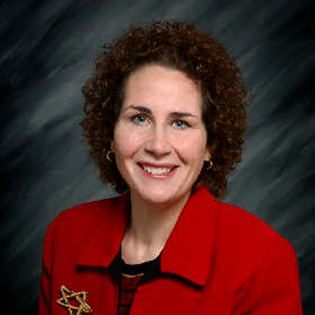By Deb Calvert, President, People First Productivity Solutions
In the workplace, there are many situations in which it would benefit us to put other people at ease. But that's not always easy to do. So here's the simple psychological technique you can use. It's one you've already mastered, because we all do this naturally with the people we are closest to.
This technique can come in handy when you need to establish rapport with someone. It helps to ease tensions when a conflict is brewing. It can also be useful when someone seems defensive, distanced or disconnected from the team. When you are able to draw others in, you gain influence and will be more effective in accomplishing your tasks.
It's called mirroring. It's what happens when we reflect others through our own words, phrases, gestures, expressions, moods and behaviors. In conversations, you already do this with the people you are closest to. You may already be doing this with complete strangers as well. When they smile, you smile back. When people look perplexed, we mirror back a puzzled expression of our own (whether or not we are actually feeling that way). When speaking with someone who uses a lot of gestures, we tend to use a lot of similar gestures, too. Mirroring shows up in our word choices as well. For example, if someone uses a lot of sports analogies, we will respond in kind with sports analogies of our own.
When we mirror somebody else's expressions or behaviors, we are building rapport with them in a subtle but powerful way. We are validating what they are expressing and how they are presenting themselves. Just naturally, when others mirror us, we feel a kinship with them. Research tells us that we that we feel those who have mirrored us most understand us best.
When we do not agree with someone or we feel resistant to him or her for some reason, we choose not to mirror them. We restrain ourselves, and we do the opposite to differentiate or set ourselves apart from them.
In the workplace, being conscientious about who we do and who we do not mirror can help us to be more effective. We can choose to mirror people in order to gain rapport with them. You can even do this with people you have subconsciously been choosing not to mirror.
This is not meant to be manipulative. The purpose of mirroring others is not to somehow trick them into agreeing with us or to doing something they would not otherwise do. The purpose of choosing to mirror someone else is twofold. First, it is to open us up so we can be more receptive to hearing or seeing what might actually be common ground. Second, mirroring others gives them an opportunity to see us in a different light, too.
You want to do this as naturally as possible. Mimicking everything someone says or does has an obvious and negative impact. No one wants to be surrounded by others who are unable to express themselves in their own unique ways. This is not about imitating others in an inauthentic way. It’s not about playacting.
The best way to find the right balance and technique is to become very observant.
First, in your conversations with people you are close to, pay attention to how they mirror you and how you mirror them. This will give you the foundational guidelines you need for understanding how best to mirror others in business conversations, too.
Second, for the person you hope to gain rapport with, observe what they do in conversations they have with others. What sorts of things do they mirror back to people they are talking to? What mannerisms, gestures or word choices do they display that you could authentically mirror?
Finally, practice. Talk with people you meet in public, at networking events, in your social circles, etc. Practice mirroring in subtle ways and pay attention to what happens when you do. Start small and build in more mirroring as you become more comfortable with it. Notice how others engage with you more quickly and more readily. Notice, too, how this helps you to relax and to feel more comfortable in conversations – even with complete strangers.
Once you have developed a better understanding of, and appreciation for, mirroring techniques, then you will be ready to use this in the workplace and in those conversations with people you haven't yet bonded with. Soon, you’ll be using mirroring without even thinking about it, even with the people you haven’t been comfortable with in the past.
Remember that everyone enjoys looking at their own reflection. You can reflect the best of what you see in others starting with these simple mirrored reflections of gestures, phrases, and expressions. When you want to be more effective, try being more reflective.
 Written by Deb Calvert, President, People First Productivity Solutions
Written by Deb Calvert, President, People First Productivity Solutions
Author of the DISCOVER Questions book series, Deb has worked as a sales productivity specialist and sales researcher since 2000. She is certified as a Master Sales Coach, Master Trainer, and host of CONNECT! an online radio show for selling professionals where listeners ignite their selling power in just an hour. Deb helps companies to boost productivity through people development. This work includes leadership program design and facilitation, strategic planning with executive teams, team effectiveness work, and performance management program design.
Do you have a question for Deb? Please visit our Workplace Communication Skills Community, she will be happy to help: Ask an Expert